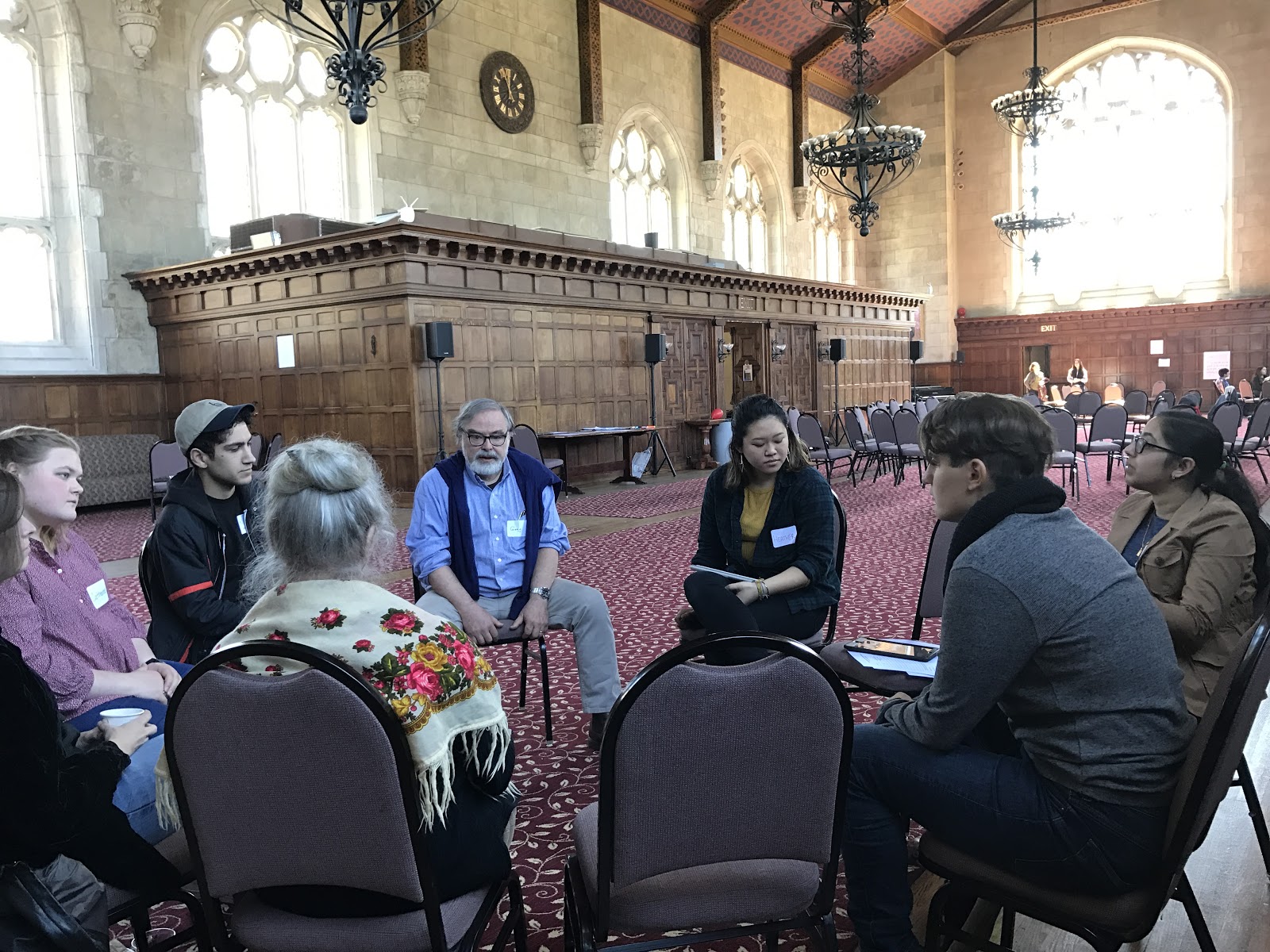By Will Herzog, Contributing Writer
Over 30 students, professors, alumnae/ni, and even a parent of a prospective student gathered in Thomas Great Hall on the morning of Saturday, April 8 to discuss the future of the Growth and Structure of Cities department.
As the department prepares to welcome two tenure-track professors over the next two years, and anticipates evolving student interests and urban challenges, participants were asked to consider how the department could “build on past success to meet current and future challenges”.
Students in the Cities course “Public Participation in Policy & Planning” seized the opportunity to put their learning into action, holding their own public workshop and gathering feedback. Mentored by city planner and professor Jennifer Hurley (BMC ‘93), the students organized the workshop around the practices of Open Space Technology.
Open Space Technology, Hurley explained at the start of the workshop, was created by Harrison Owen, “who thought the best parts of conferences are usually the coffee breaks, where you can talk about the topics you care most about.”
Lacking a formal agenda or speakers, participants created their own topics of discussion based on their driving interest, then formally separated into smaller discussion groups, taking notes on each topic.
Participants brought their most innovative thoughts to the conversation, ideas that ranged from a GIS software “intensive” over fall break to a required course on sustainable urbanism. They received feedback from peers and suggestions on how to develop the idea further.
Over 75% of participants responded in an exit survey that they “strongly agree” the workshop was a good use of their time, and the remaining 25% responded that they “agree.”
Nicky Rhodes ‘19, a Cities major at Haverford College, believes that the workshop reinforced his understanding of the department’s importance.
“[The department] has a lot of potential and many diverse areas to grow, especially in such a politically, socially and environmentally complicated time,” he said. Despite the unconventional format, he emphasized that the workshop “felt very well organized.”
Victoria Garner ‘19, a Cities major at Bryn Mawr College, viewed the workshop as both a feedback session and a community-building exercise.
“The workshop reinforced my love for the Cities major not only as an academic major but as a community,” Garner reflected. “I especially loved the discussion on Life After Cities and how clear it was that everyone wants to actively continue to support each other.”
The workshop ended with a barbecue lunch in the Thomas Great Hall cloisters, and participants continued building on the discussions and establishing relationships throughout the meal.
Students in Hurley’s seminar are compiling a report on the conversations and feedback, which will be presented to Cities Department Chair Gary McDonogh for review and strategic implementation.
